In Australia, more than 27,000 babies are born too early each year, and this can add trauma or financial difficulties to parents’ lives. Fortunately, leading hospitals are equipped with life-saving medical equipment and highly trained staff to support babies and parents. As part of World Prematurity Day on November 17, we wanted to explain more about what life is like inside the Neonatal Intensive Care Unit (NICU).
Our little babies sometimes need the medical care of others in their transition to the outside world. The Neonatal Intensive Care Unit (NICU) provides care to babies that are born premature, and/or require medical/cardiac or surgical care. This care is provided by a team of neonatologists (baby doctors for babies born before 32 weeks gestation), paediatricians (care over 32 weeks) and nurses who provide specialised 24-hour care to your precious baby/s.
A planned or unexpected admission to the NICU can be a scary and a challenging time for parents especially when the duration of admission may be unknown. Here are some ways to help make this transition into the NICU an easier one, remembering the nurses and doctors are there to guide you throughout your NICU journey too.
Suggestions to help the transition to NICU life:
- Get oriented with the pod (room) your baby is in.
- Ask questions and keep yourself updated with the plan of your baby’s care.
- Talk to your baby and touch your baby. Remember they know your voice and that you are their parent/s.
- Get involved in your baby’s routine and cares for example, changing nappies and baths.
- If expressing breastmilk, express next to your baby as this has proven to help with building your milk supply and an easier let down.
- “Kangaroo cuddles” we call skin-to-skin contact with your baby. Kangaroo cuddles are proven to help stabilise their heart rate, breathing and oxygen levels.
- “Cuddle Hearts” are soft fabric hearts that you swap between you and your baby each time you see them. They provide a link between you and your baby when you cannot be together. One heart is placed on your skin to retain your scent and the other is placed close to baby for the same reasons. The cuddle hearts help calm, reassure, and settle your baby when you are apart, and helps with building a mothers’ milk supply, setting up for successful breastfeeding when baby is able. If you are crafty and would like to make your own here is a guide to make cuddle hearts.
- Take time out for your own mental health, go for walks around the hospital, read a book and talk to other parents going through the same journey.
- Take lots of photos, document your journey and milestones met in the NICU.
- Let your friends and family know how they can support you by providing meals, childcare for older children or dropping you at the hospital.
- Ask for help if you’re struggling with the adjustment of the NICU environment. There are many other team members such as social workers and psychologists ready and prepared to help you.
Remember it takes a village to raise a baby. Sometimes that village includes the help of others we may have never met!
World Prematurity Day
World Prematurity Day on November 17 is held annually to raise awareness of the challenges and burden of preterm birth globally. Every year 15 million babies across the world are born premature, and it is something that can happen to any one of us irrespective of where we live, our culture or socioeconomic status.
For further information, support or to find out more, here are some useful resource links:
- Miracle Babies Foundation
- Preterm Infants Parents Association
- Raising Children (tips for family and friends)
- Pregnancy, birth & baby
